Top Pros & Cons of RV Living You Should Know
As an Amazon Associate, we earn from qualifying purchases. We also earn from other affiliate websites. See our full disclaimer.
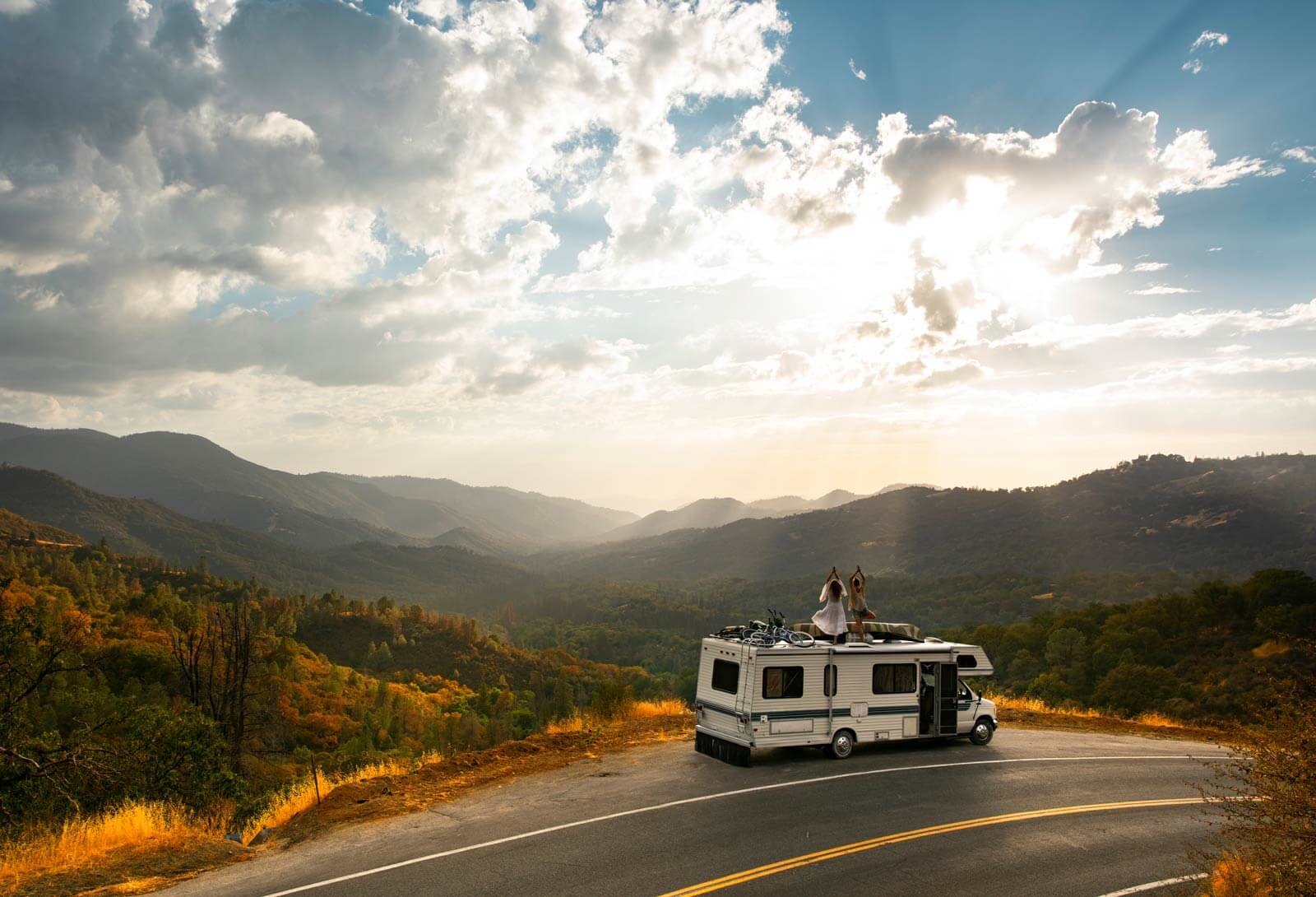
Living in an RV can be a great experience, but it’s not for everyone. There are some definite pros and cons of RV living and this unique alternative lifestyle.
Whether or not to take the leap and live full-time in an RV is a big decision. You want to make sure you gather lots of information about living on the move and weigh all your options. You’ll also want to look at the benefits and obstacles of traveling in different types of RVs – living in a travel trailer or fifth wheel full-time looks a little different from living in a small motorhome or van.
After over six years of nomadic living (three of those in an RV), here are the major pros and cons I’ve found to RV life.
Let’s look at each of these key considerations and things to know before living full-time in an RV.
Pros of Living in an RV
Here are ten great benefits to living year-round on the road in an RV.
1. Mobility
When you live in an RV, you have the freedom to go wherever you want, whenever you want. You’re not tied down to one location. If you get tired of the weather in one place, you can just pack up and go somewhere else.
Some RVs are more mobile than others. For example, travel days are a bit easier in a van or small motorhome than in a large towable RV. But with a little planning, you can get most places in an RV of any size.
Overall, the mobility factor is a significant advantage to RV life.
2. Travel with the Comforts of Home
Something really wonderful about RV living is you can travel with all the comforts of your home – because the RV is your home!
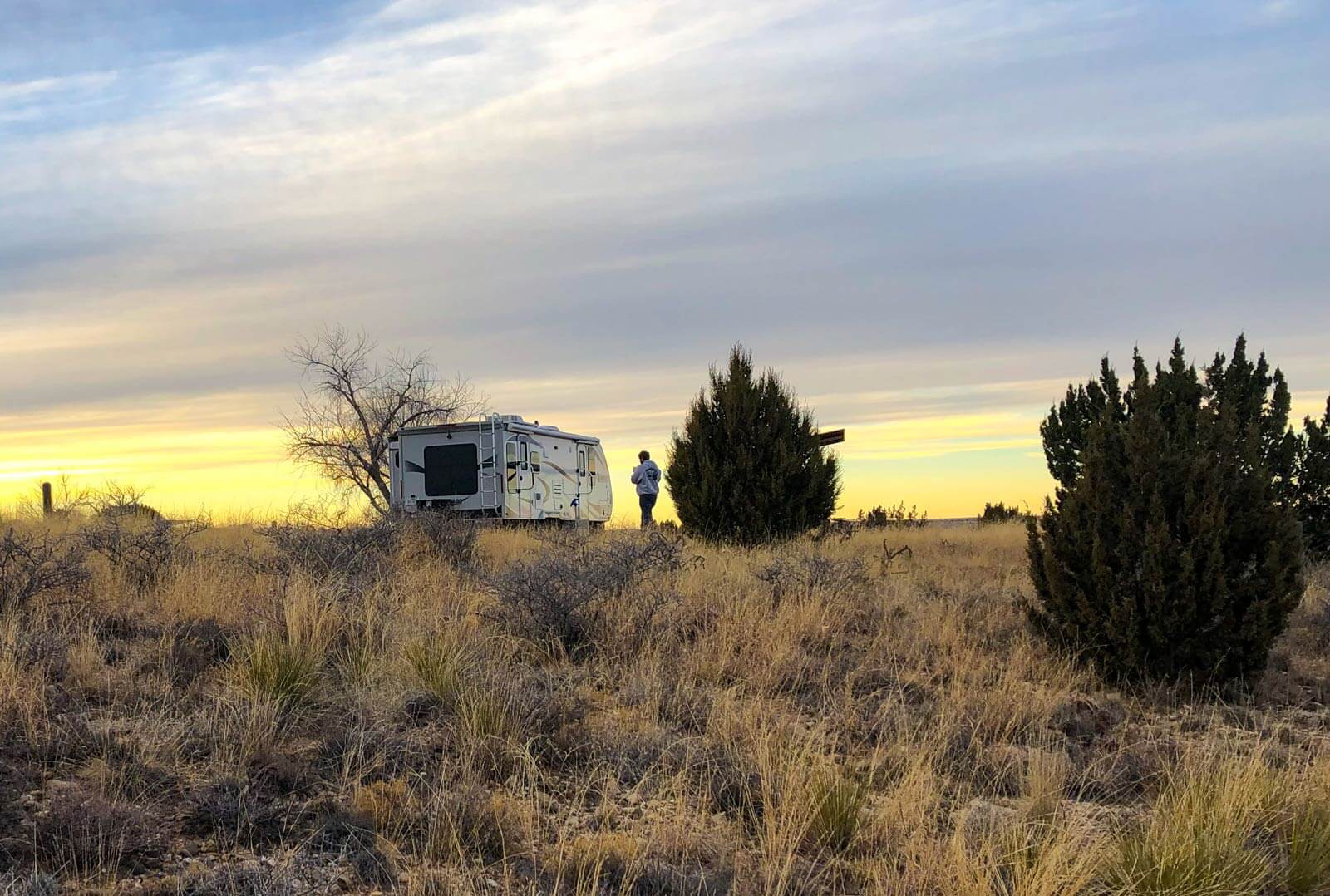
You can avoid these regular travel burdens:
- packing and unpacking in different hotels
- minimizing your packing list
- sleeping in beds that aren’t your own
- not being able to prepare food or cooking in a kitchen unfamiliar to you
Traveling in an RV allows you to enjoy the adventure while still giving you a familiar and unique place to come home to.
3. Flexibility
RV living offers a lot of flexibility since you can change your location and home base as often as possible. If you want to spend the summer by the beach and the winter in the mountains, you can do that.
It also offers you flexibility with your money and time. You can save money in an RV that will allow you more financial freedom. Living a more minimalist lifestyle will also free up time to concentrate on the things you genuinely want to spend your days doing.
4. Cheaper Lifestyle & Cost Savings
RV living can be more affordable than traditional housing since you can save money on rent or mortgage, and utilities. Keep in mind you will need to budget for campgrounds and fuel, but you won’t be locked into these costs the way you are with rent or a mortgage.
Want to save more on camping? You can try boondocking for a couple of weeks.
Want to keep fuel costs down? Move campsites less frequently or camp in places closer to each other.
Many RV membership clubs let you save a ton of money on campsites if you plan ahead and use them frequently.
You can live a very cheap or very luxurious life in an RV, but most people can comfortably live this lifestyle on $1,800 – $3,500 a month, depending on your lifestyle. (For a breakdown of what we spend annually, check out The Real Cost of Full-Time RV Living.
NOTE: If you decide to finance an RV, you’ll need to budget for your payment. RVs can range enormously in price, so this can vary. We recommend buying what you can afford to purchase outright to keep costs down.
For more information on how to RV on the cheap, check out the Ultimate Guide to Full Time RVing on a Budget.
5. Closer to Nature
With life in an RV, you become very in tune with the outside. It’s why many people love the lifestyle. It’s so easy to step outside to enjoy the weather, the scenery, and nearby wildlife.
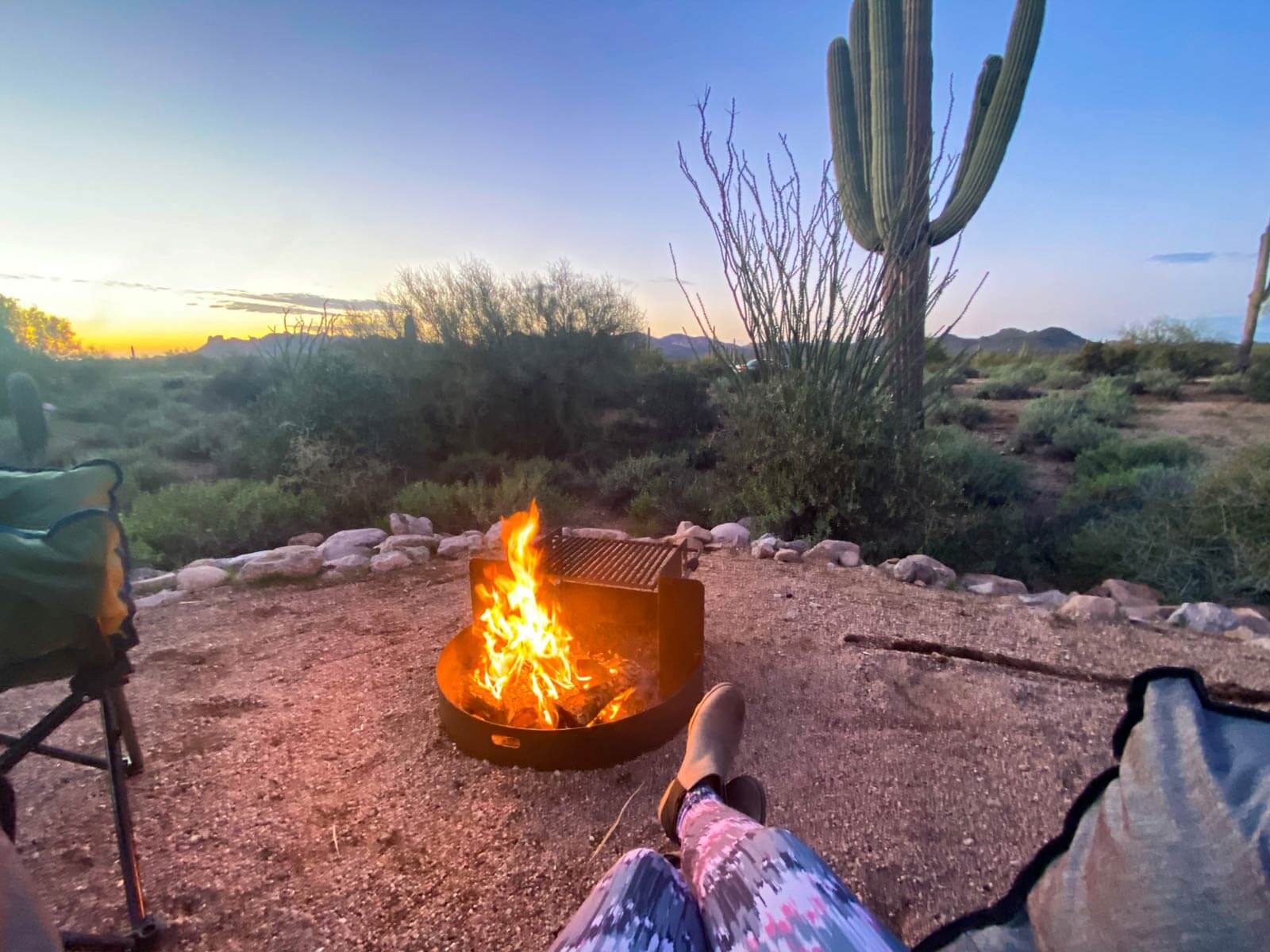
Being in this environment often improves mood and can make you more active, leading to a healthier life.
6. Quality Time
Being in such a small space, you naturally spend a lot of time with your traveling partner, family, or pets.
Cozy campsites provide an area for everyone to gravitate toward and enjoy together. Exploring and trying new things is also a great way to bond and make the most of your time with your family.
Even spending quiet time in the outdoors with yourself can be very therapeutic.
7. Eco-Friendly Lifestyle
Living in an RV can be more eco-friendly than a traditional home, and the lifestyle will emphasize your consumption and resource usage.
Limited storage means we don’t like to carry many cleaning supplies or paper towels, so we find simple, reuseable cleaning solutions for our home on wheels.
If you are wild camping or boondocking – you can also invest in solar to create your own power. Find ways to conserve water so you can stay off-grid longer. Or look for alternatives to minimize waste, so you don’t have to find ways to dispose of your trash constantly.
Living with a small footprint is definitely a benefit of RVing, whatever your camping style.
8. Minimalism
RV full-time living allows you to simplify your life. It can be a challenging transition when you downsize to an RV, but embracing minimalism is a skill you’ll never lose, even after your RVing experience.
Learning how to cut your emotional ties with material possessions that you don’t need is an eye-opening process that will benefit you for the rest of your life.
9. Adventure and Experiences
One of the best benefits of living in an RV is that it allows you to have many adventures and explore many new places. It’s the main draw when people look at how to travel full-time.
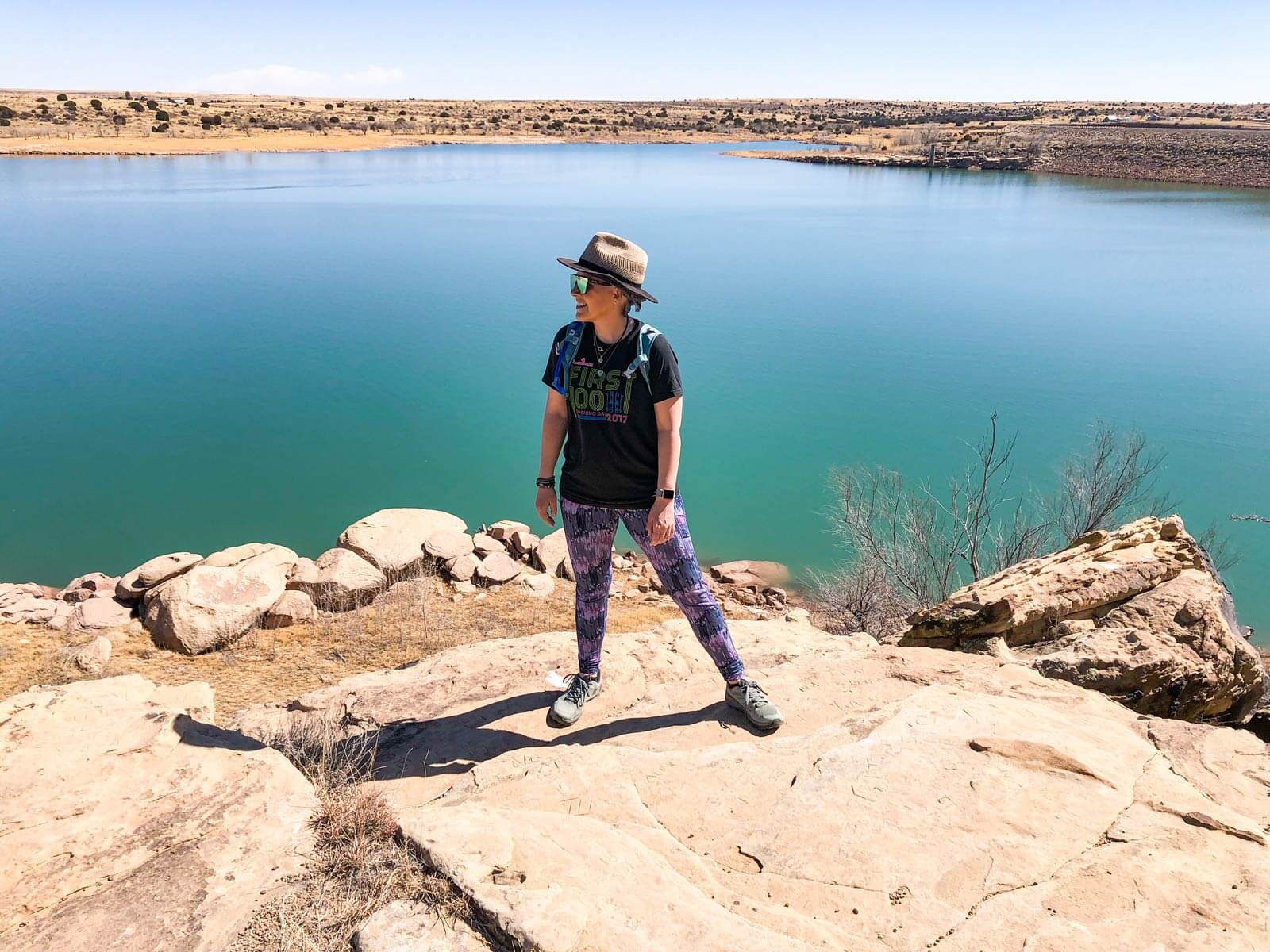
RVing offers an avenue to create great experiences that you’ll remember for many years to come.
10. Freedom
Living in an RV can be a great way to be self-sufficient and live on your terms.
It can provide a path for you to be free from a mortgage, a house and stuff that ties you down, and freedom to travel when you want, enjoying a more flexible lifestyle.
BONUS: Your Pet can Travel with You!
Bringing your furry friend along can be one of the most significant benefits of RV life for pet owners. Living on the road in an RV, you have the advantage of being able to bring along any four-legged family members on your travels.
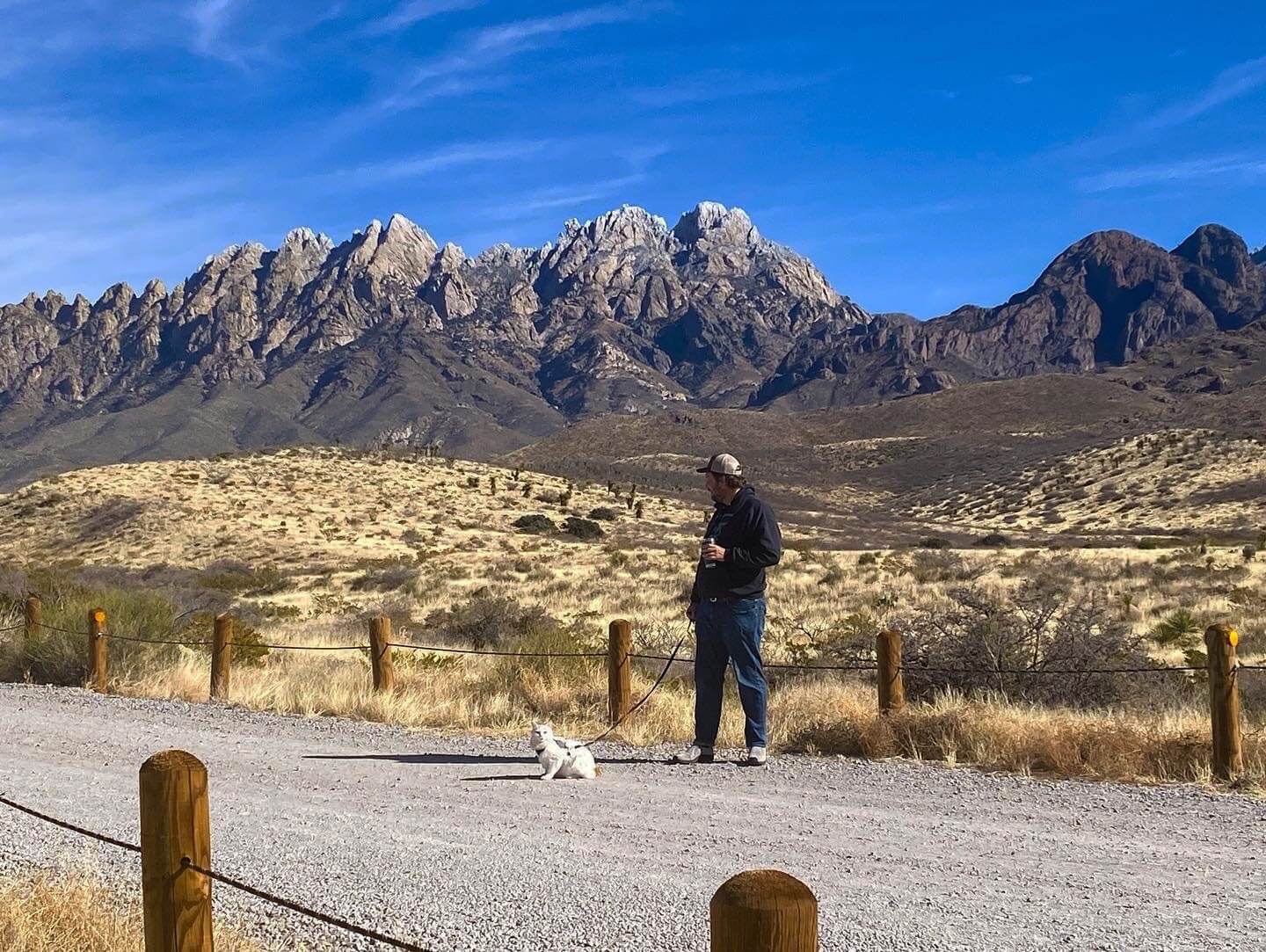
Many full-time RVers choose this lifestyle primarily because they don’t have to leave their pets when they travel.
READ NEXT: Check out our post on how to go RVing with Cats: A Complete Guide.
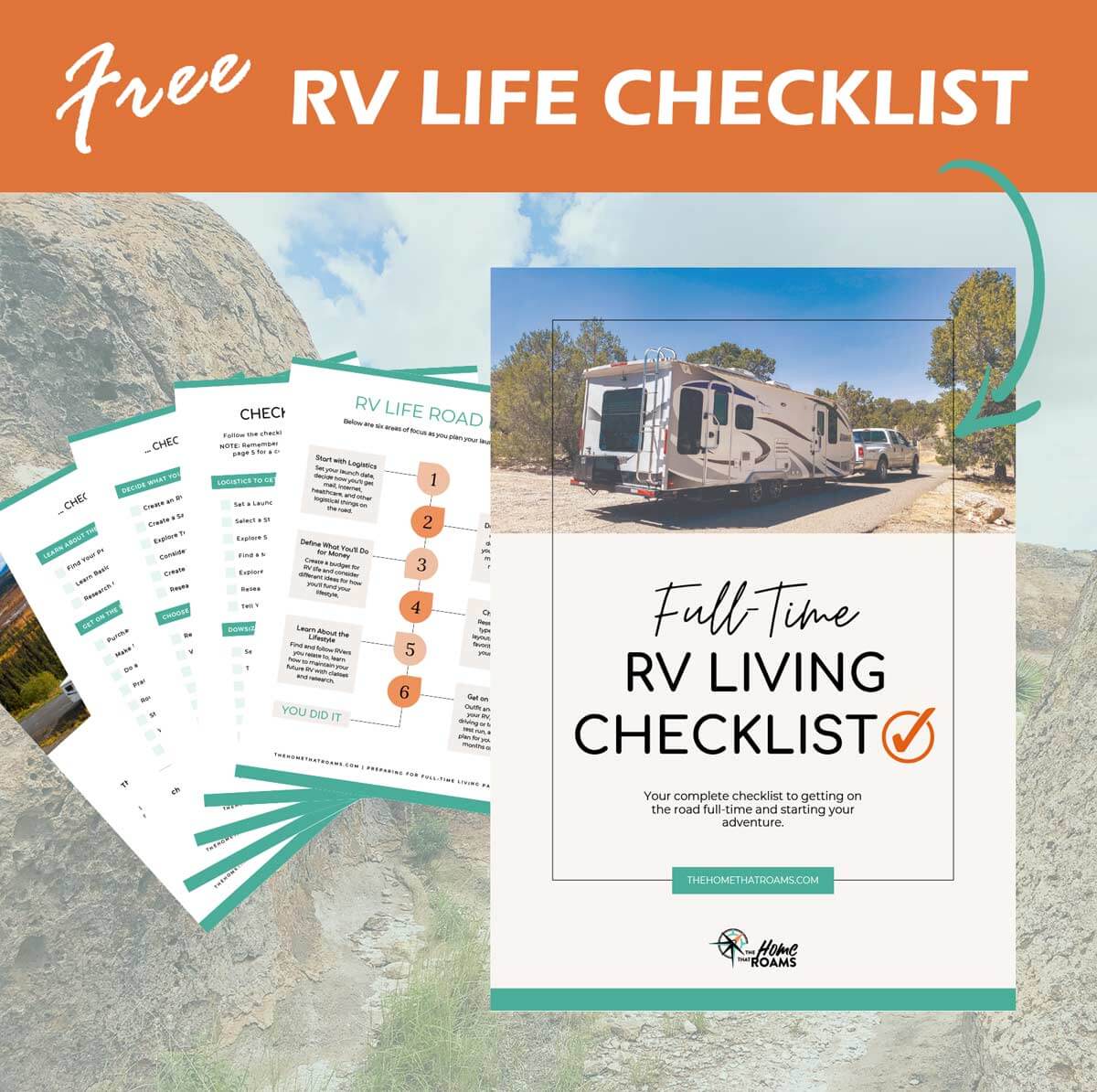
Your Guide to Launching RV Life
Road Map & Checklist – Start Now!
Unsubscribe at any time. View our privacy policy.
Cons of Living in an RV
Now that we’ve covered the bright side of full-time RVing, I’m sure you want to know – what are the negatives of living in an RV?
1. Lack of Space
RVs can be small and cramped, which may not be ideal for everyone.
Living in a small space means using spaces for multi-purposes, cooking in a small area, getting dressed with a smaller closet, and figuring out how to navigate a tiny bathroom.
You’ll have to learn how to live in this little space which may take some time to adjust.
2. Limited Storage
One of the downsides of living in an RV is that storage can be limited. This means you may have to get rid of more than a few of your belongings. You may also have to get creative with storage solutions, take advantage of vertical storage, and downsize your kitchen and cookware.
This can be challenging, but it’s crucial to think about what you really need and what you can do without.
3. Weather
Unpredictable weather has a more significant impact on living in an RV than in a physical house.
Tornado watches are no joke when you live in a rolling, lightweight home. But even wind, thunderstorms, and the surprise snowstorm will play a more prominent role in everyday life.
If you are caught unprepared, snow and cold temps can freeze pipes, the holding and water tanks, and cause propane tanks used to heat the RV not to function.
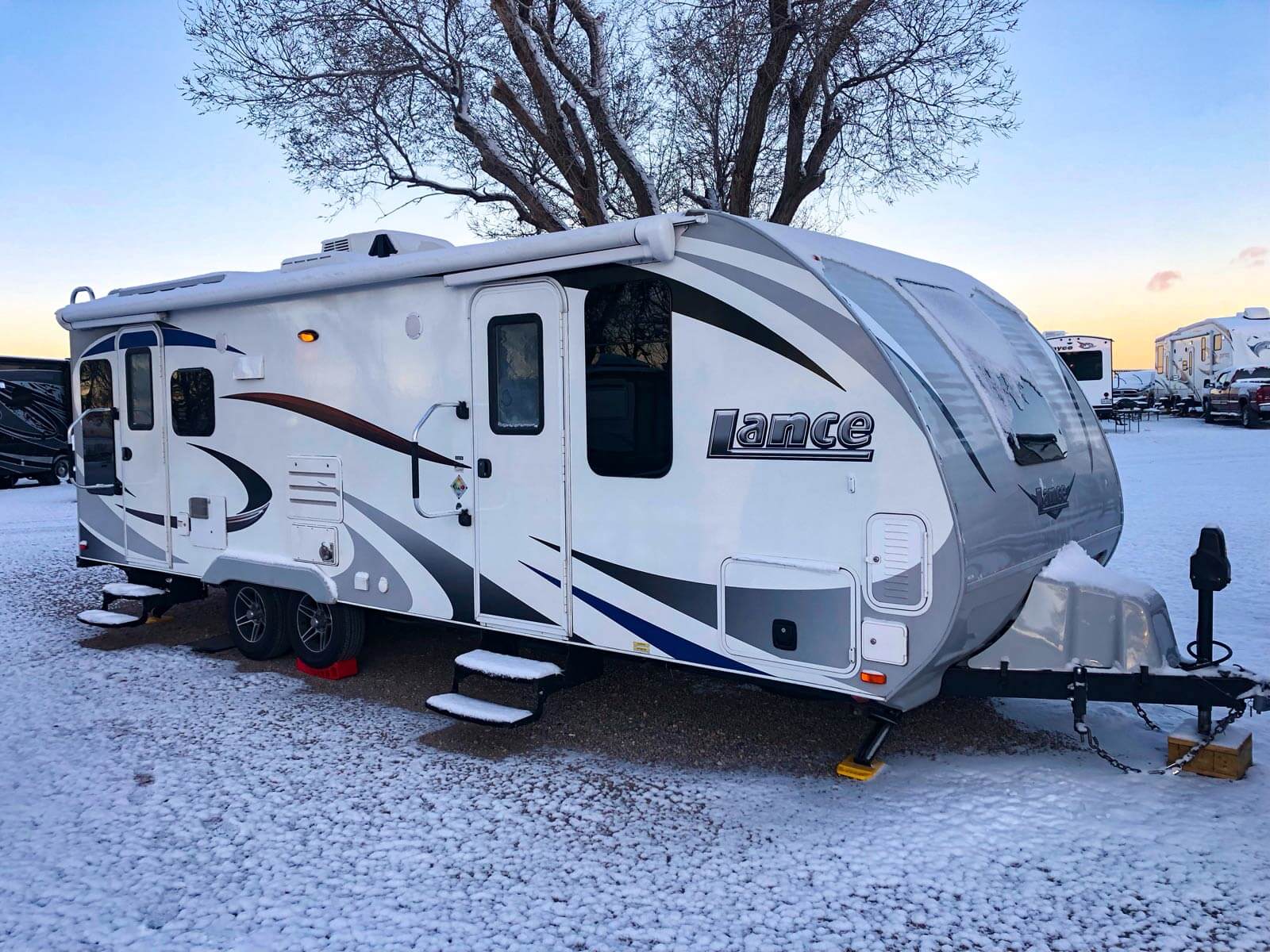
Wind can also be a real pain at a campsite.
When the wind kicks up, you need to:
Wind in an RV can be uncomfortable as the RV gets pushed around. Of course, when storms or wind events become severe, it’s imperative to seek shelter.
Wind on travel days can be particularly tough. Driving down the highway with a crosswind towing a 40-foot trailer can be extremely difficult.
4. Temperature Fluctuations
Most RVs have little to no insulation, meaning the temperature inside an RV will fluctuate quickly. If you are in a hot and humid environment, you will constantly fight the heat, mold, and mildew. If you are in a cold climate, you will struggle to keep the RV warm.
The upside to this is that you have the power to move your home and chase those sunny and 75 temps!
5. RV Maintenance
RVs are homes on wheels. They are built with lightweight materials so they can move down the road and provide a great traveling experience.
Things will require maintenance, and things will break (usually at the most inconvenient times). Maintaining and fixing your RV can be time-consuming and expensive without proper planning. As a general rule of thumb, the bigger the RV, the more costly the annual maintenance (especially when you start looking at large class A motorhomes).
Make sure you learn some basic DIY maintenance skills for your rolling home, and you’ll be able to find a balance in the cost and learn more as you go.
6. RV Depreciation
RV depreciation is another downside to living in an RV. Just like a car, your RV will lose value over time, which can be frustrating if you ever want to sell it down the road.
When you sign on to this lifestyle, you must accept that your home is no longer a financial investment.
7. Travel Days
Travel days can be a stressful part of the RVing lifestyle.
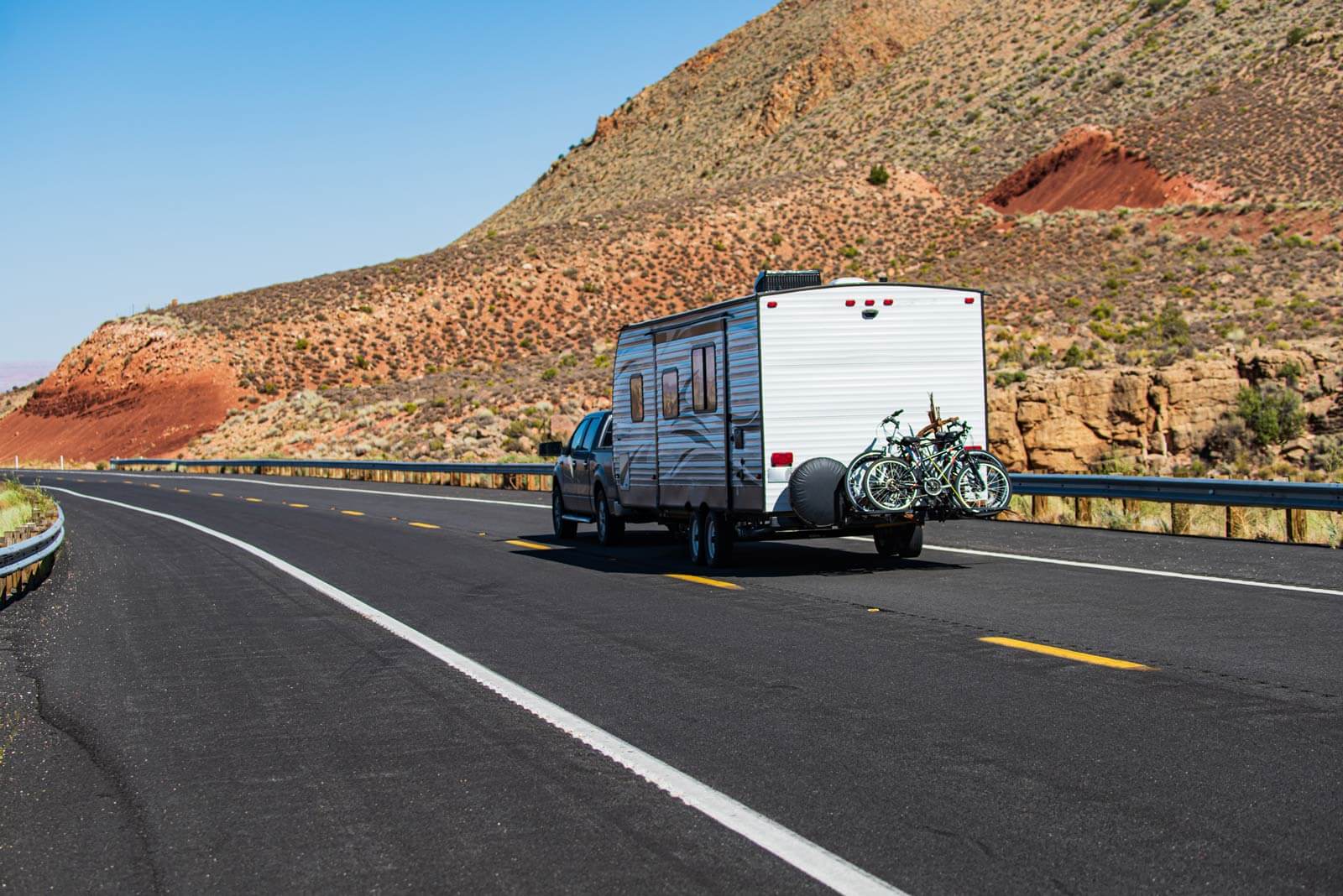
Here are just a few things that add to the tension of RV travel days.
I’ll admit I sometimes have to close my eyes riding shotgun in a big city in heavy traffic. Depending on the size of the RV, you may also have to watch out for narrow roads, height restrictions, turn radius, and more.
8. Changing Routines
If you are traveling in your RV, it can be difficult to find a routine and stick with it.
Things can be different based on how often you travel and where you stay. We spend a lot of time just going with the flow but sometimes have to slow down and find a routine in one spot for a while. Primarily when you work on the road, this can be a challenge.
9. Noise & Privacy Issues
Since RVs are smaller than traditional homes, they can be noisier and less private. RVs don’t have the insulation of a house, so most noises outside will infiltrate the inside.
If you are used to having your own space and plan on sharing the RV with your significant other or family, it might take some time for everyone to learn to live in a tiny space together.
10. Internet Access
Reliable internet in your RV if you need to work or stay connected can be challenging. Although it’s not nearly as tricky as in past years, getting internet access in your RV requires equipment and planning.
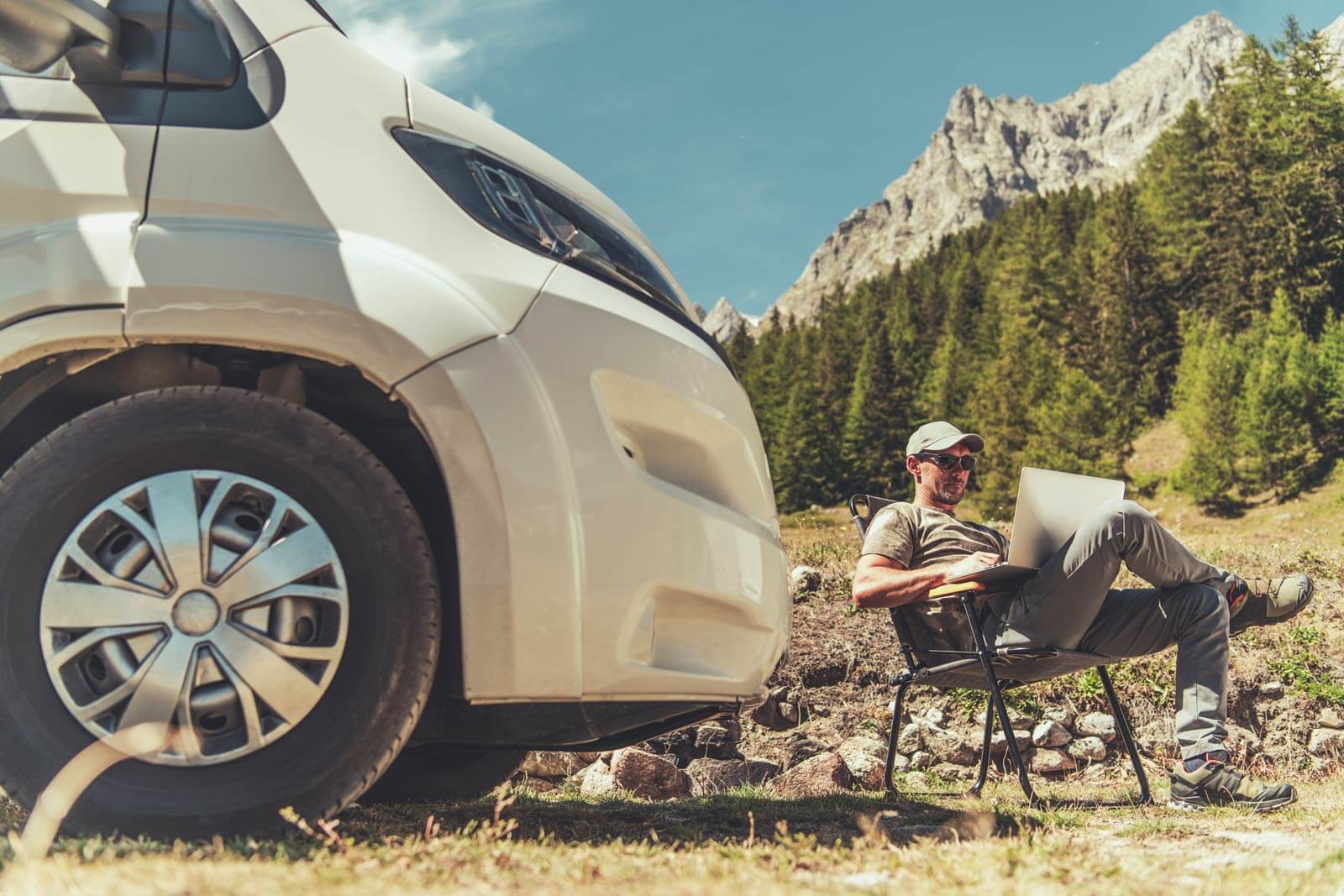
You don’t want to rely solely on campgrounds for wifi. Often, the connection is slow, or the signal isn’t strong enough to reach your campsite.
Most RVers opt for:
- multiple carrier hotspots
- unlimited mobile data plans
- a cell booster (and possibly a wifi booster)
- satellite internet plan
The RV campsite location app, The Dyrt, also offers carrier service overlay maps to see what access you will have in specific camping locations. This technology allows you to plan and make sure at least one of your carriers is available at your future campsite.
Satellite Internet
The launch of the SpaceX program Starlink has provided satellite internet connections for RVers who are entirely off-grid. This program is still fairly new, but it’s fantastic to see satellite internet becoming a more affordable option.

Your Guide to Launching RV Life
Road Map & Checklist – Start Now!
Unsubscribe at any time. View our privacy policy.
Is It Worth It to Live in an RV?
There are many pros and cons of full-time RV living, but overall I think it’s a worthwhile experience. If you’re willing to make some adjustments and can handle the occasional inconvenience, living in an RV can be a great way to travel and see the world.
Living in an RV might not be for everyone. But being able to live a more independent life has its perks.
Ultimately, it depends on your individual needs and preferences. RV living has a lot of benefits, such as mobility, flexibility, and cost-effectiveness. Still, it also has a few drawbacks, such as a lack of space and the inconveniences of living in a transportable home. If you’re considering RV living, weigh the pros and cons carefully to see if it’s the right choice for you.
Want more beginner tips on RVing and how to get started?
Check out our RV gear lists, info on how to choose an RV, how to prepare for full-time RVing, and more in our guide.
Like this post? Save it on Pinterest for later.
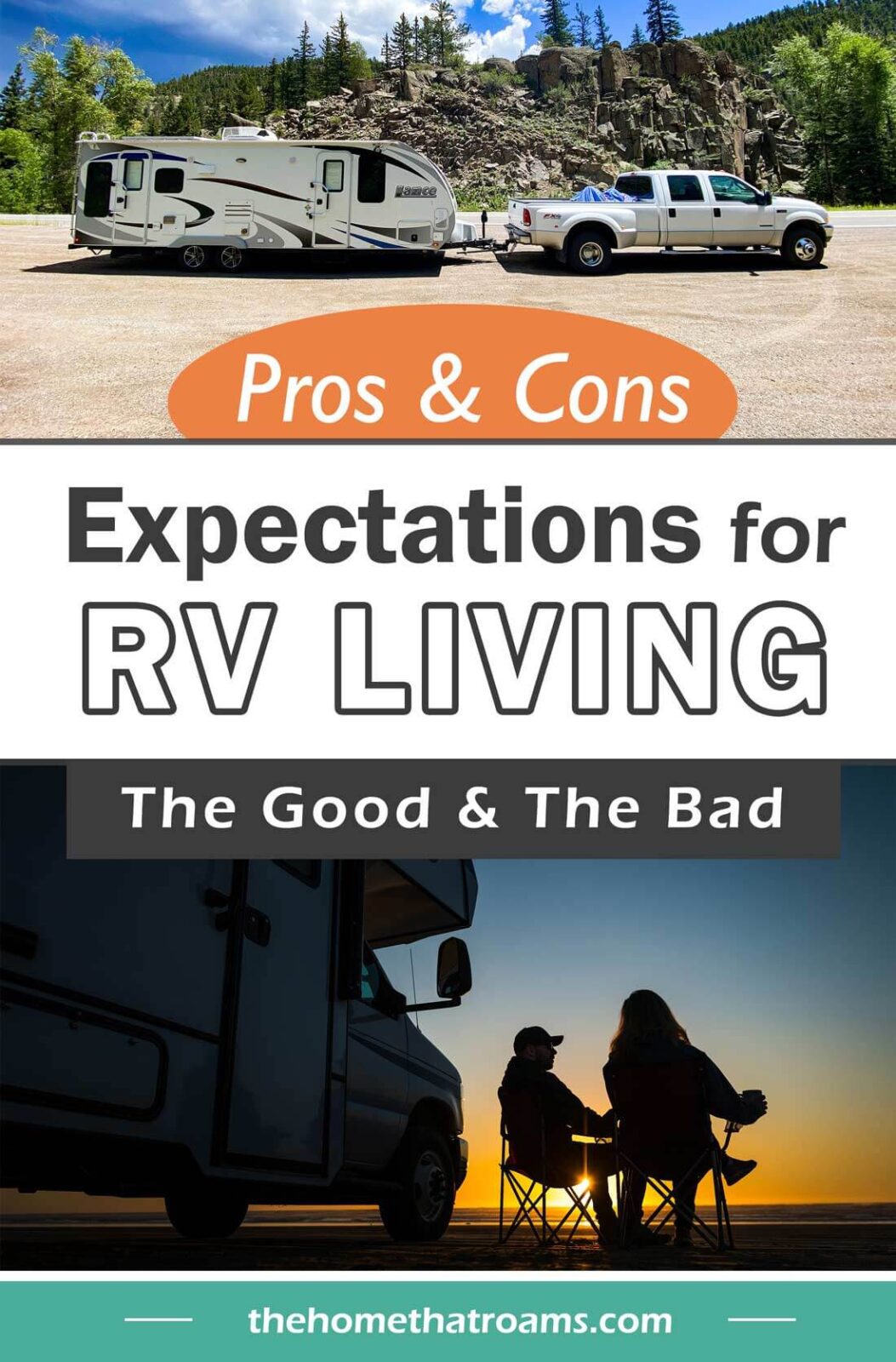
Or view our web stories.


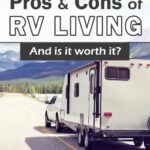
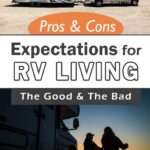
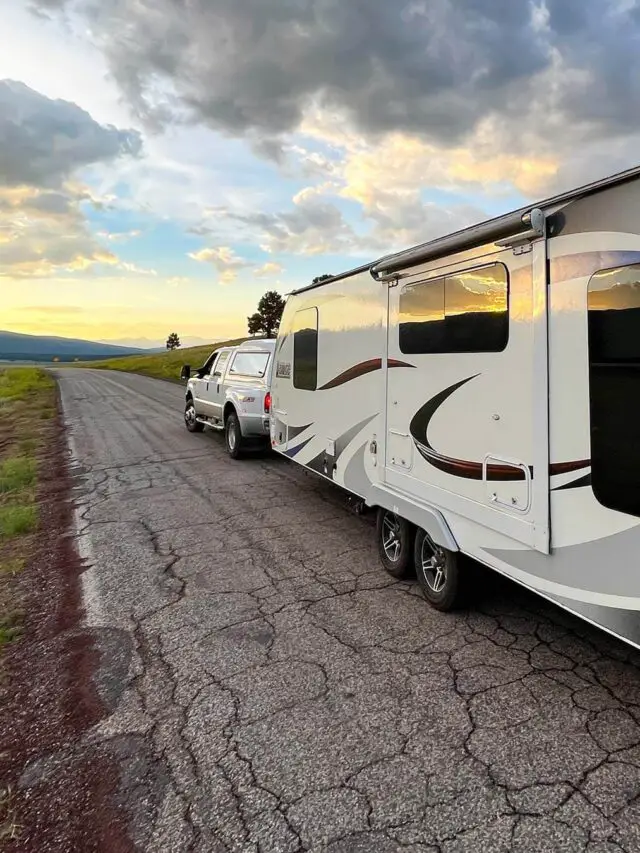

ty for the info.
Glad you found it helpful!